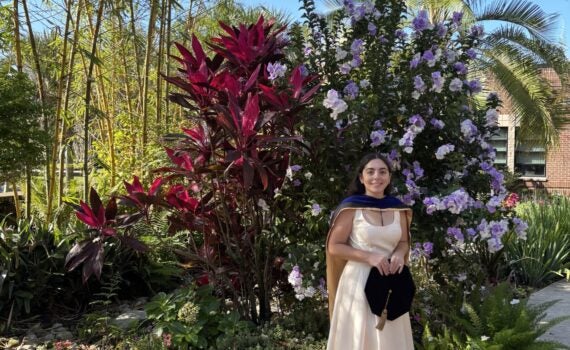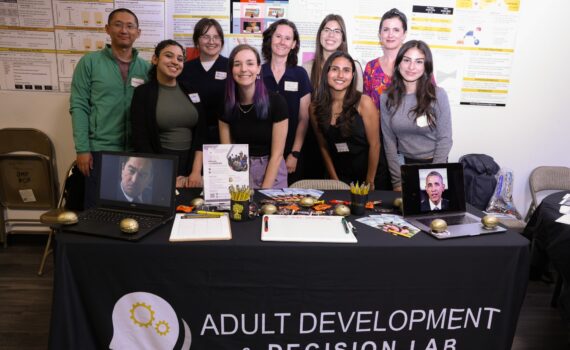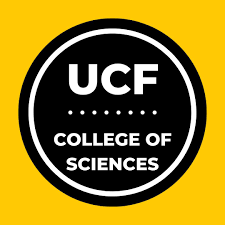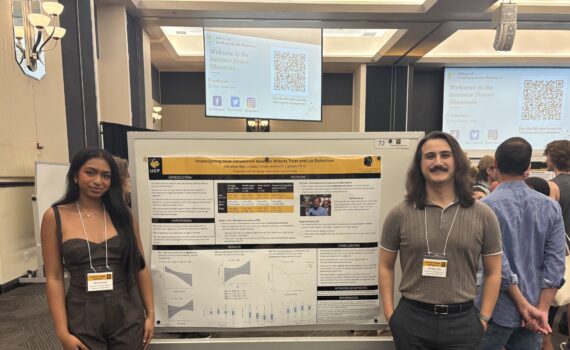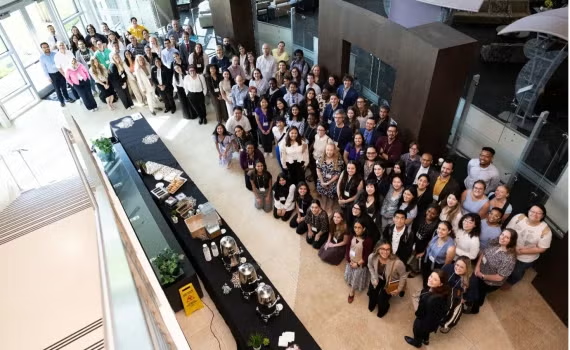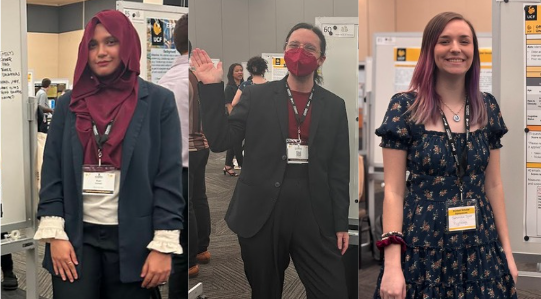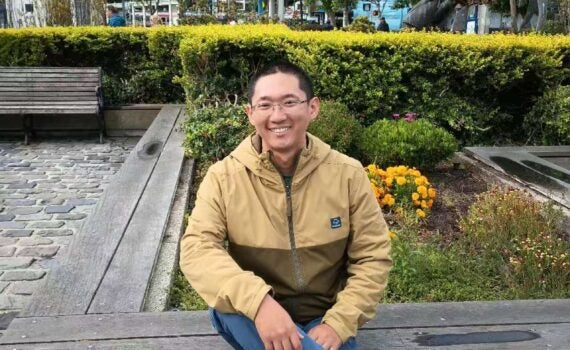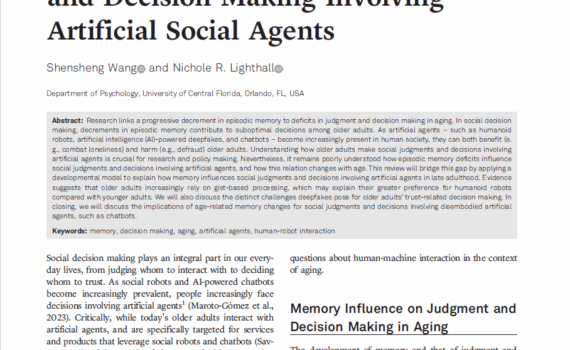Congratulations to ADDL Ph.D. student, Dr. Shayna Soares, on her graduation! In October, Shayna defended her dissertation entitled “Exploring Fake News Detection: Unpacking Polarization, Ambiguity, and Neural Mechanisms Associated”. This project combined fake news, uncertain decision-making, and neuroimaging (fNIRS) to better understand how people make decisions under uncertainty and […]
Yearly Archives: 2025
It is of utmost importance to the lab to cultivate a welcoming environment for our research participants. At the end of each session of our Reducing Misinformation & Exploitation and Deciding Brains studies, we collect feedback so that we may continue to improve and optimize the participant experience. Below are […]
Members of the AD&D Lab have long been committed to meaningful community engagement, using research as a tool to address the real-world needs of aging populations. Through active participation in community outreach events—such as at the “Science Café” event hosted by the UCF Disability, Aging, and Technology Faculty Cluster, the […]
Undergraduate research assistants in the Adult Development & Decision Lab learn and gain skills in many different domains. Check out what some of our recent undergrad RA alumni are up to now! Yogita Venkata (Undergrad RA; Class of ’23) joined the Clinical Psychology MA degree program at Northwestern University […]
We are thrilled to congratulate Dr. Lighthall on her new role as the Interim Associate Dean for Research in the College of Sciences! You can read Dr. Lighthall’s welcome message to the College of Sciences in her new role here.
Congratulations to Christian Yam and Nanisa Goyal on their selection for the 2025 Summer Undergraduate Research Fellowship program by the UCF Office of Undergraduate Research! The fellowship allows the two students to continue their research at the ADD lab over the summer while receiving a $2,000 stipend. Additionally, the students […]
The Florida Consortium on the Neurobiology of Cognition (FCNC) is an annual conference hosted to provide opportunities for researchers of Florida at all stages of their career to present their work, and network. Cognition researchers from across Florida gathered at University of Central Florida on May 8th and 9th. The […]
Congratulations to three of our undergraduate AD&D research assistants for winning Judges’ Choice Awards for their posters, presented at the 2025 UCF Student Scholar Symposium. Awardees and poster info (left to right): Kazi Salsabil (undergrad RA), Shayna Soares, Nichole Lighthall: “Fake or Real? Unmasking the Role of Personality, Cognitive Reflection, and […]
Congratulations to ADDL postdoc Shensheng Wang who was awarded the Richard Tucker Gerontology research grant from LIFE@UCF. His project, entitled: Humanness in the Eye of the Beholder: Perception of Humanoid Robots in Aging, investigates how aging shapes the perception of humanoid robots. The aim of the study is to understand […]
The paper addresses the role of age related changes to memory in social judgment and decision making involving artificial social agents. As artificial intelligence becomes increasingly humanlike—through social robots, deepfakes, and chatbots—our ability to discern what’s real and whom to trust is increasingly scrutinized. In a recent invited review in […]
